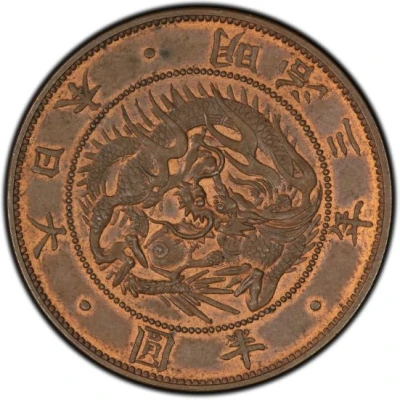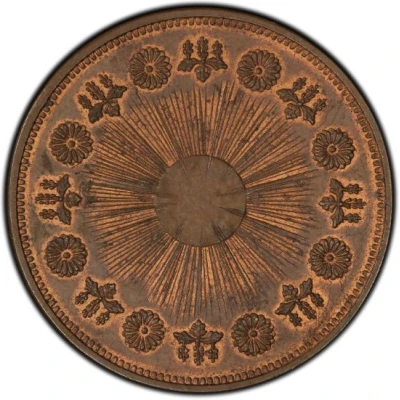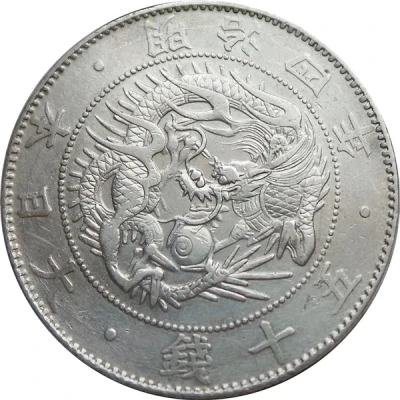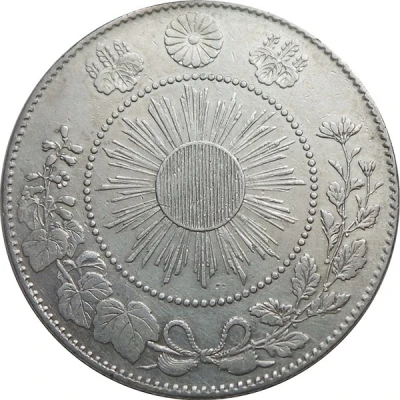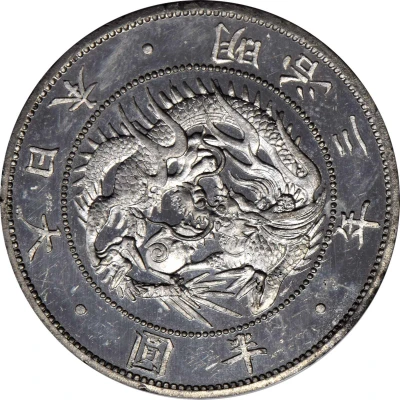
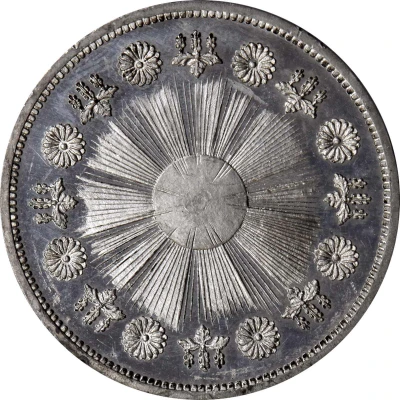

© Stacks Bowers
½ Yen - Meiji Tin pattern
3 (1870) year| Tin | - | - |
| Issuer | Japan |
|---|---|
| Emperor | Meiji (1867-1912) |
| Type | Pattern |
| Year | 3 (1870) |
| Calendar | Japanese - Meiji era |
| Value | ½ Yen (½ JPY) |
| Currency | Yen (1871-date) |
| Composition | Tin |
| Shape | Round |
| Technique | Milled |
| Orientation | Medal alignment ↑↑ |
| Demonetized | Yes |
| Updated | 2024-10-05 |
| Numista | N#402983 |
|---|---|
| Rarity index | 100% |
Reverse
Sunburst surrounded by eight 5-7 paulownia seals and eight chrysanthemum seals, alternating each other.
Engraver: Leonard Charles Wyon
Edge
Plain
Interesting fact
The Pattern ½ Yen - Meiji (Tin pattern) 3 (1870) from Japan made of Tin is a rare and unique coin that was minted during the Meiji period, which was a time of significant cultural and economic change in Japan. One interesting fact about this coin is that it was designed by a British engraver named George William de Saulles, who was hired by the Japanese government to help modernize the country's currency. The coin features an image of a phoenix on one side and the Japanese imperial crest on the other, and its unique design and rarity make it a highly sought-after collector's item among numismatists.
